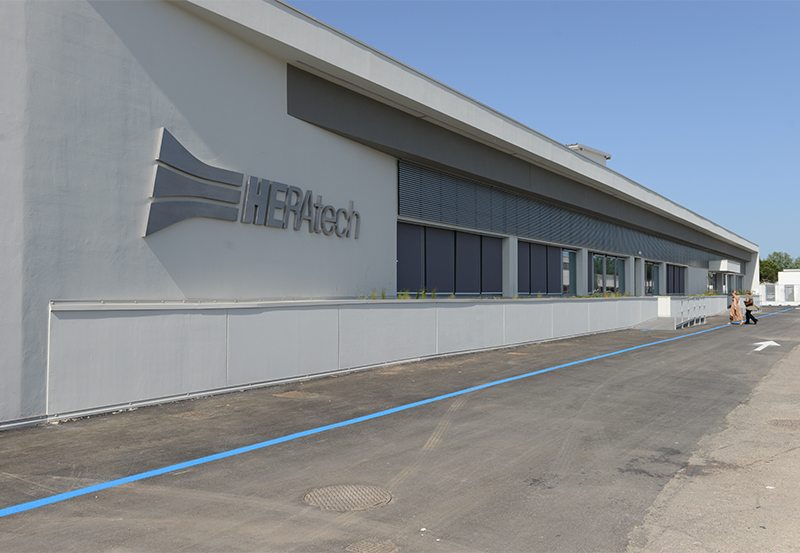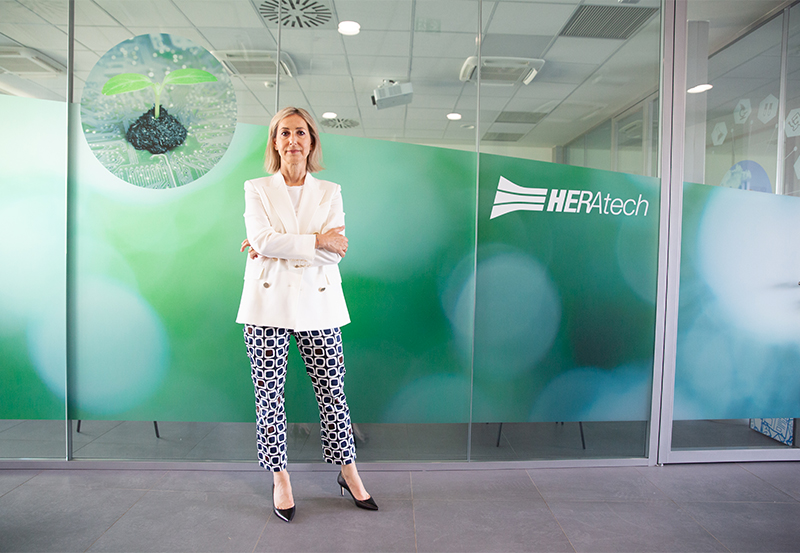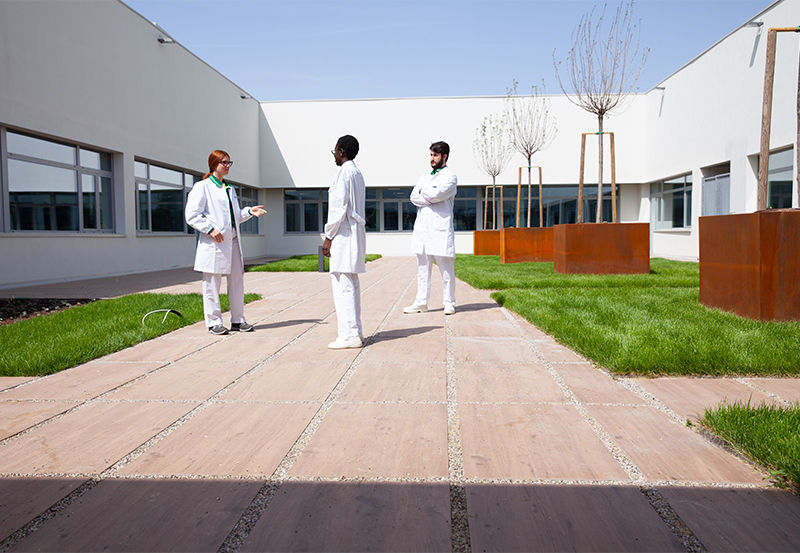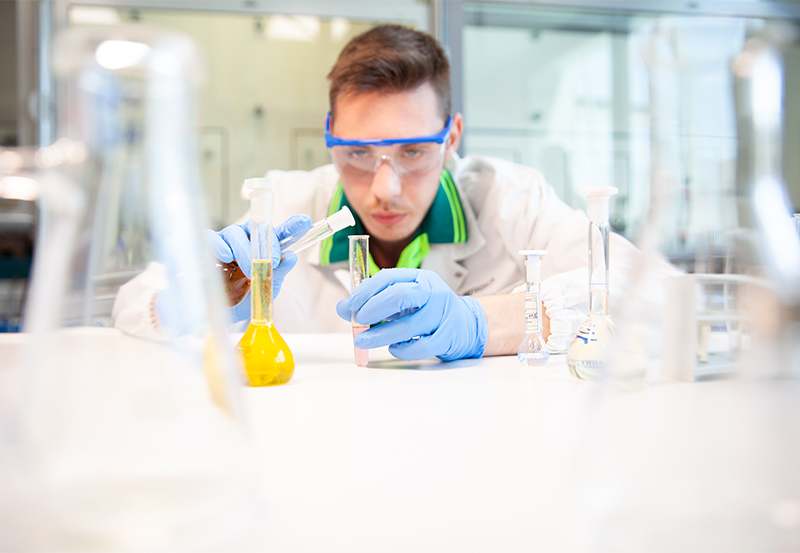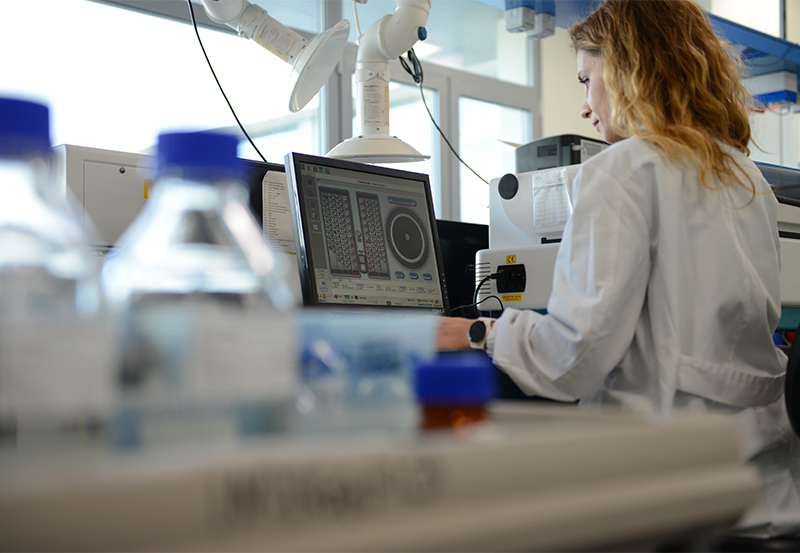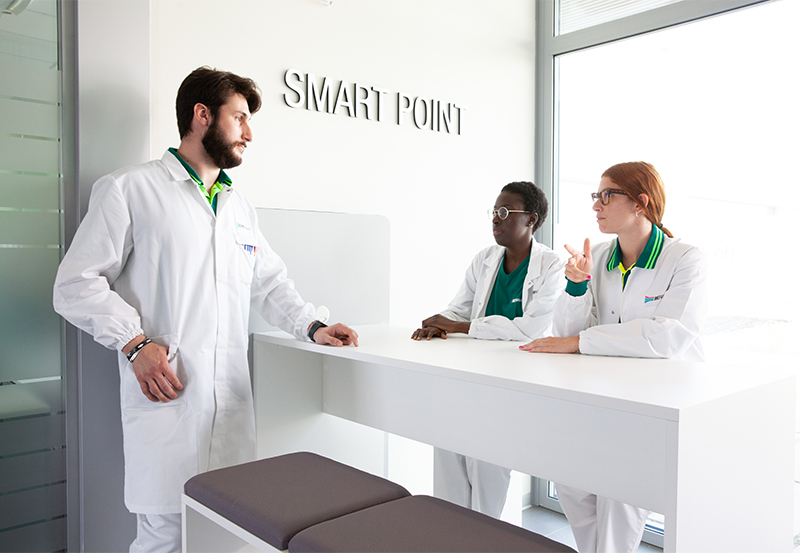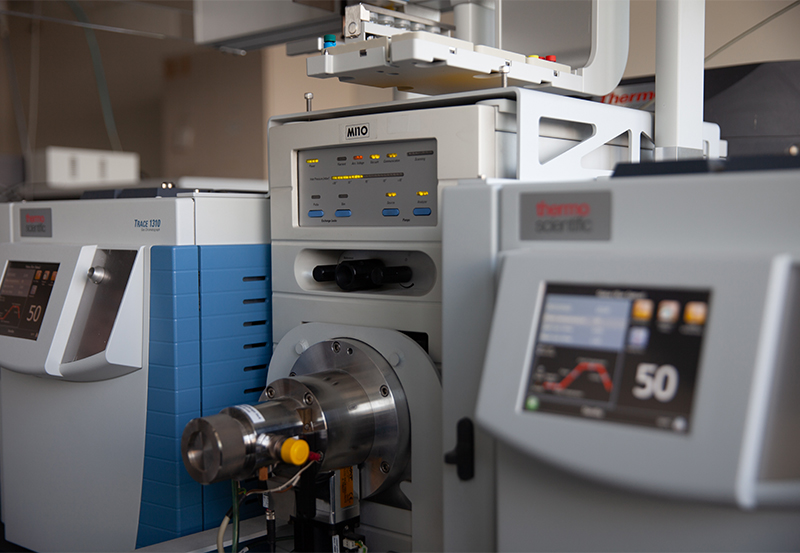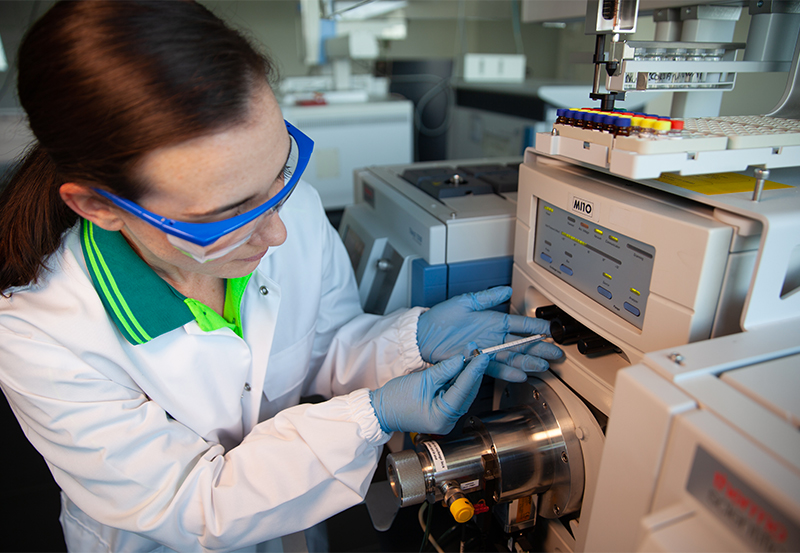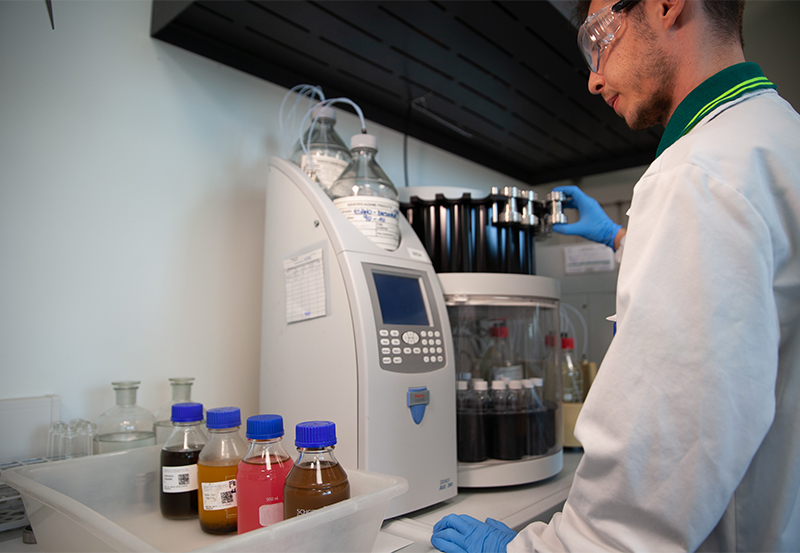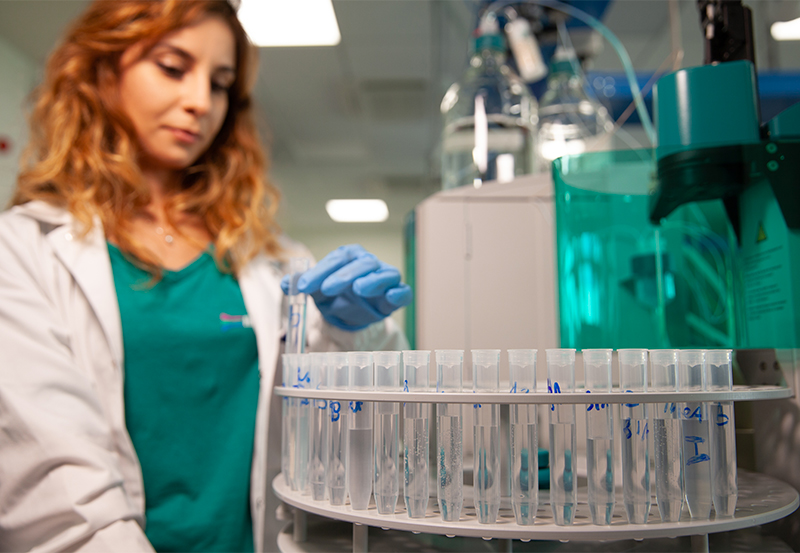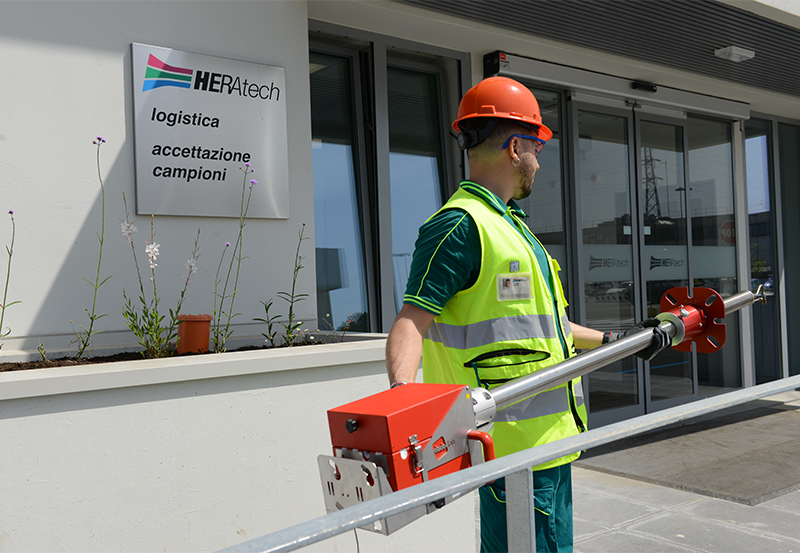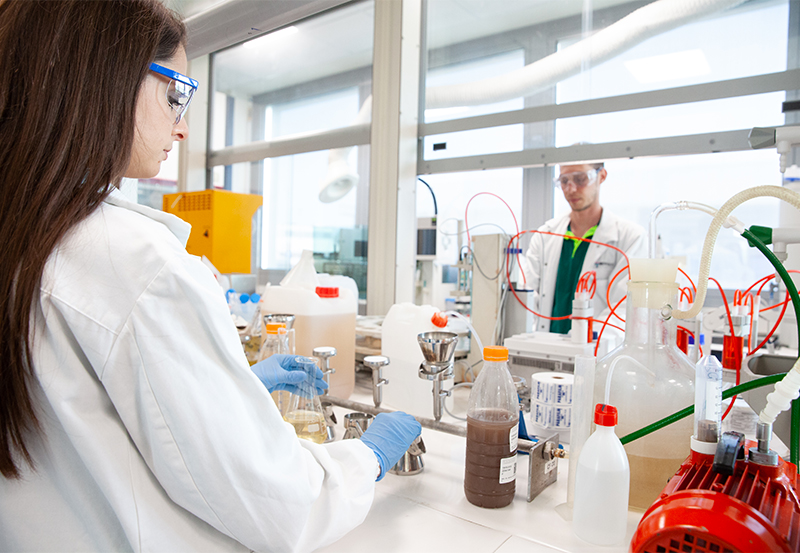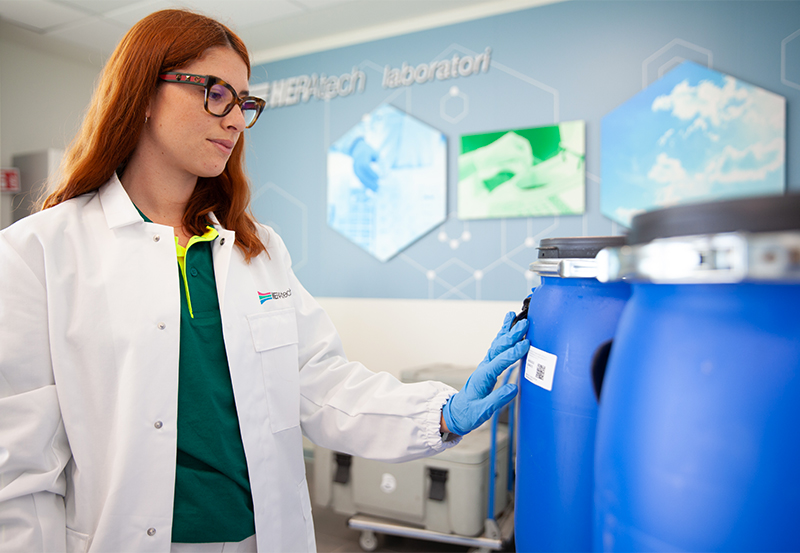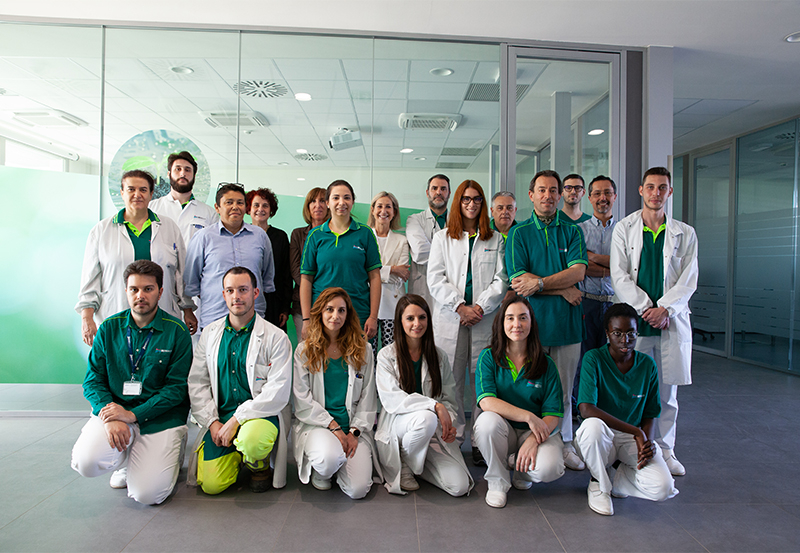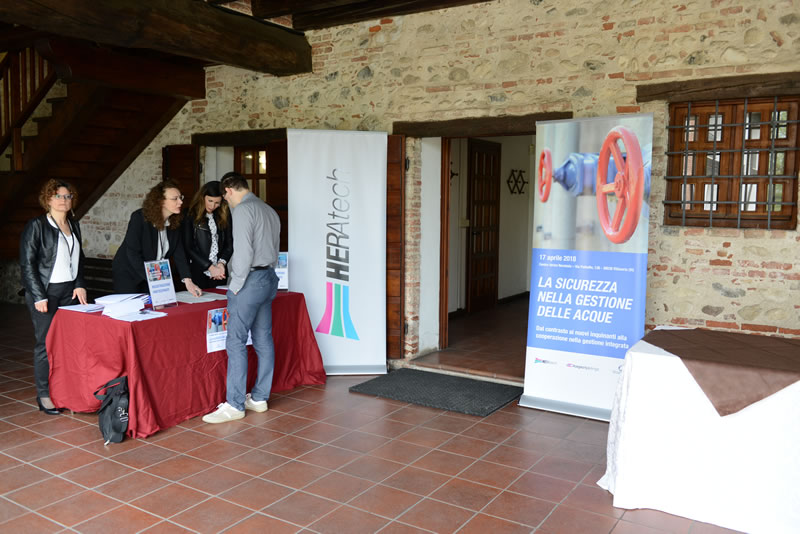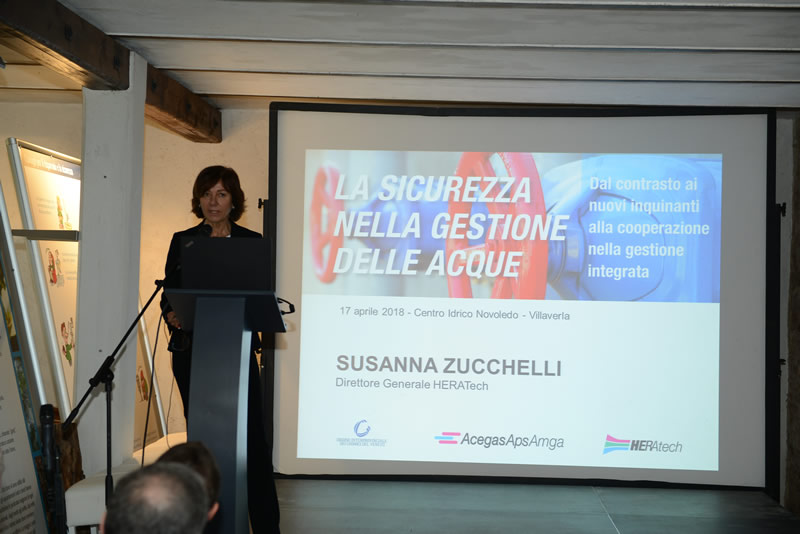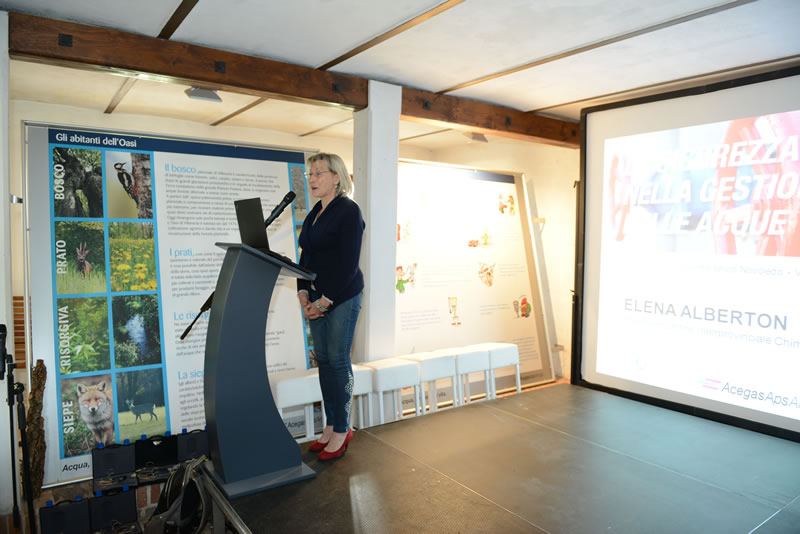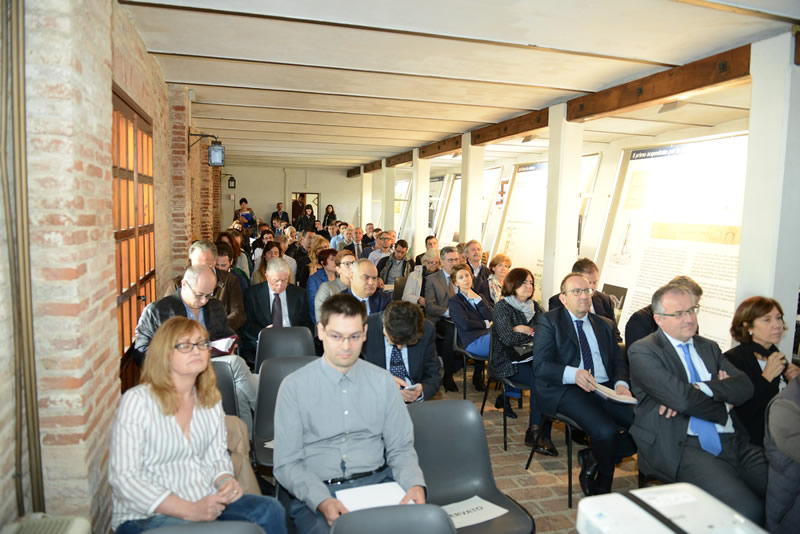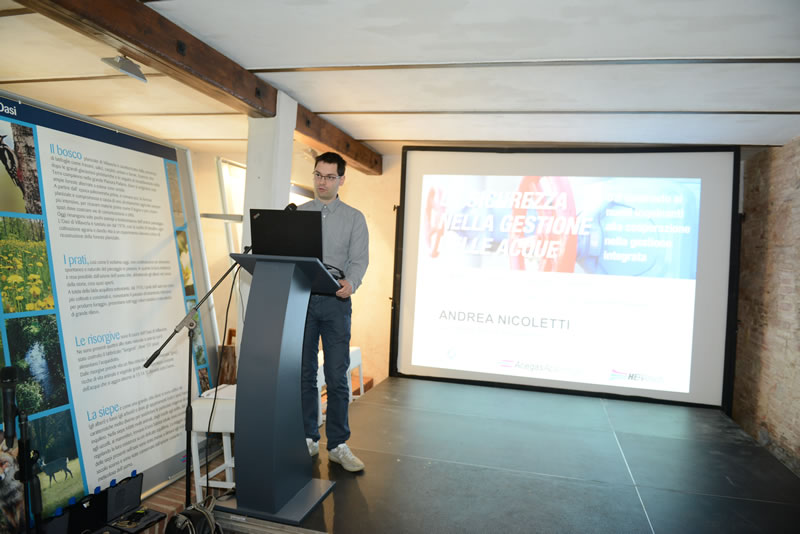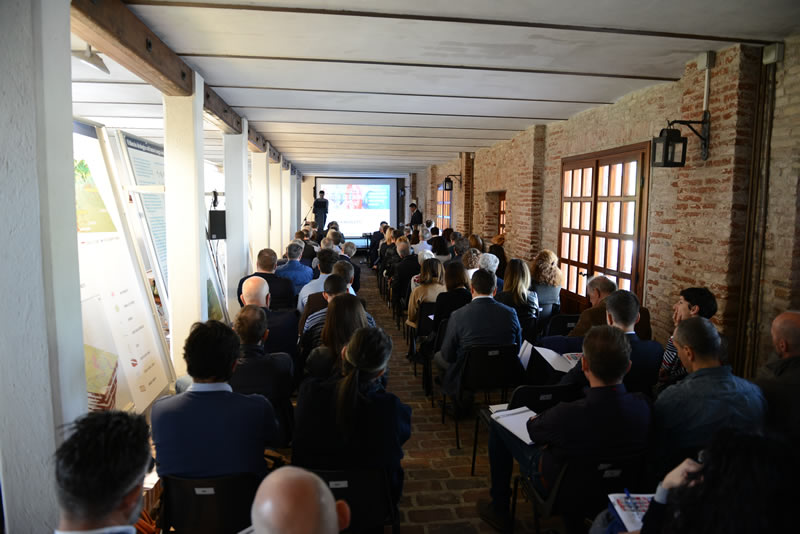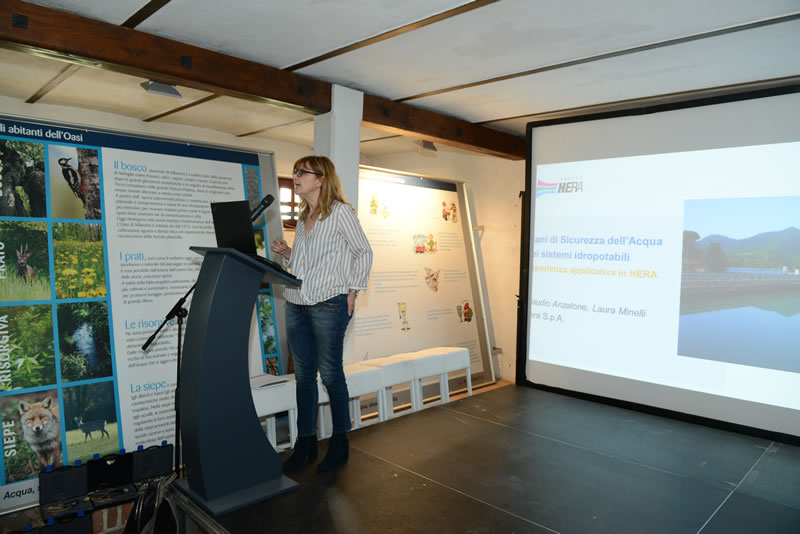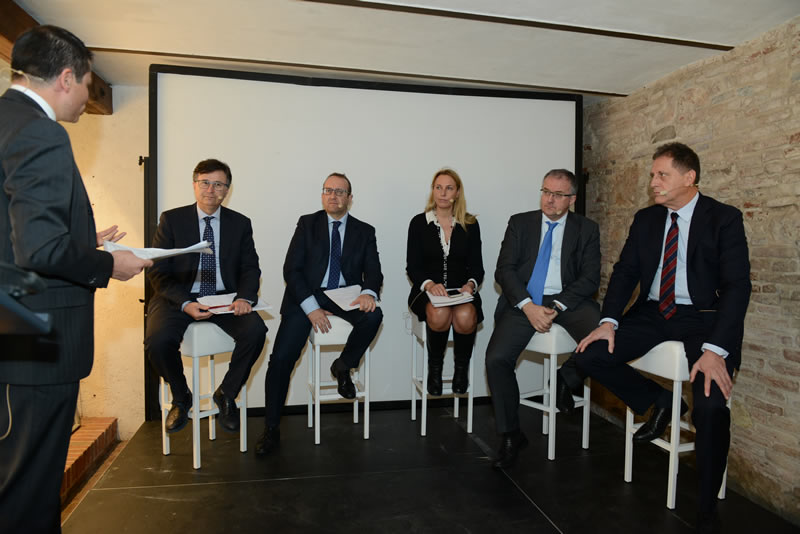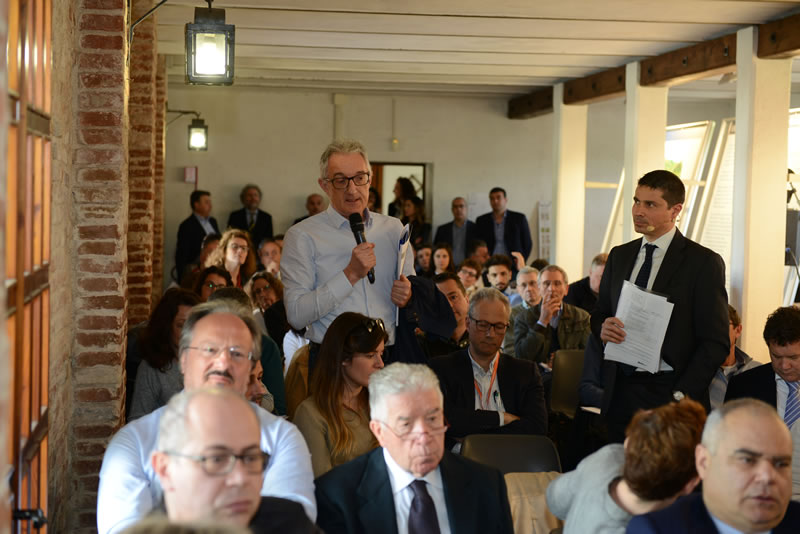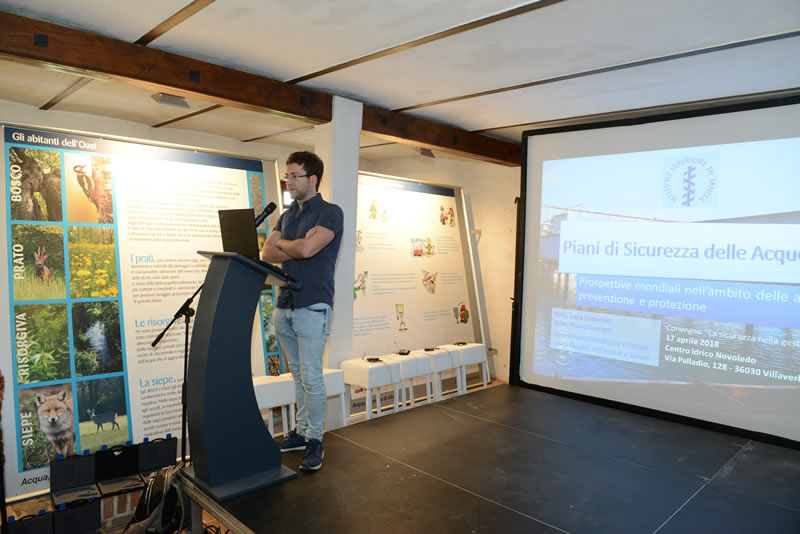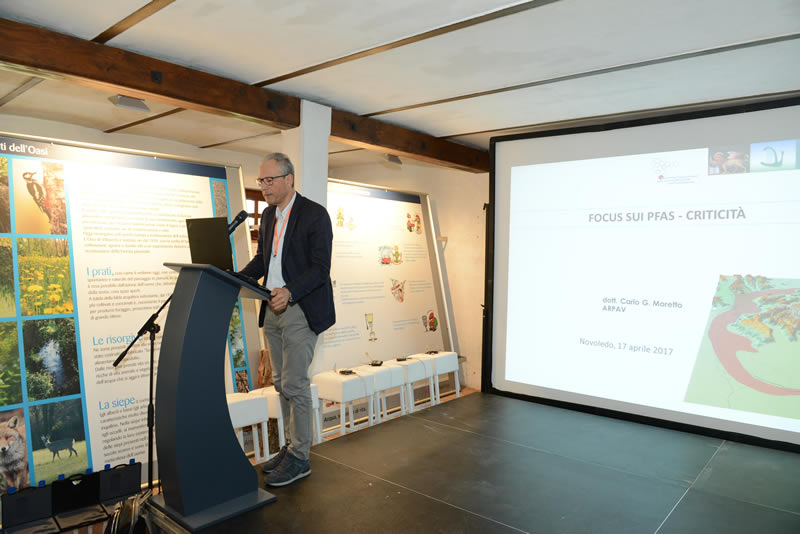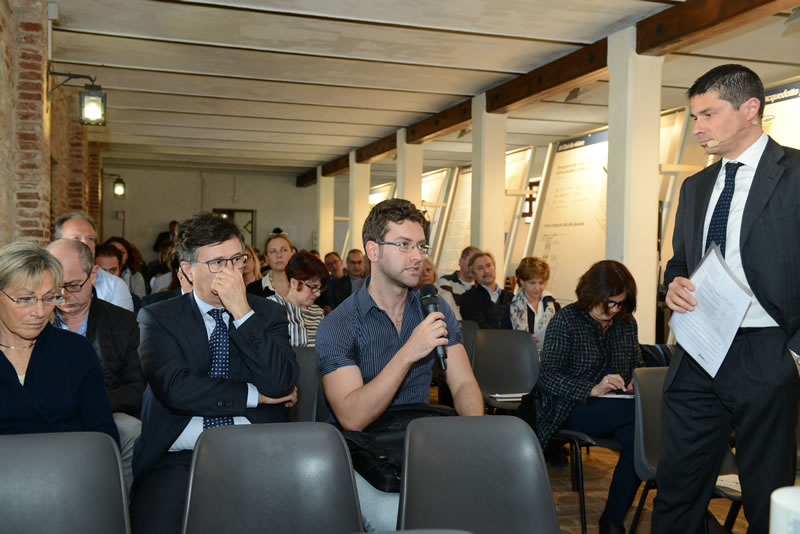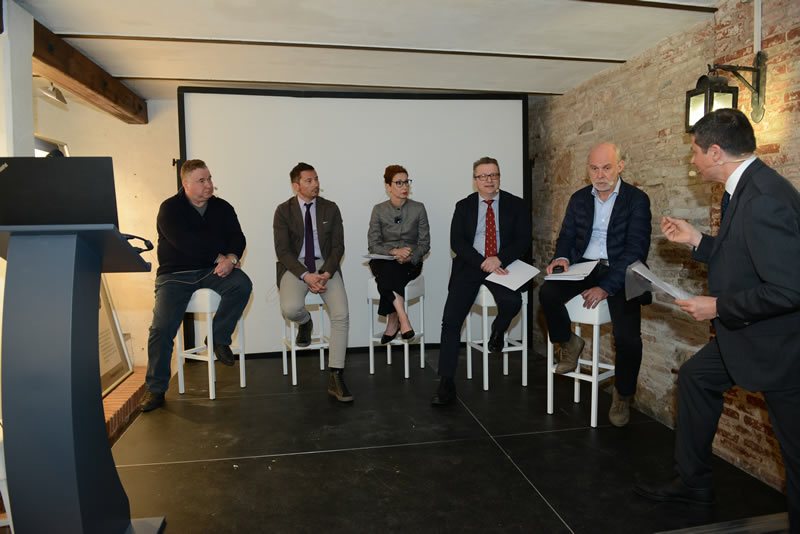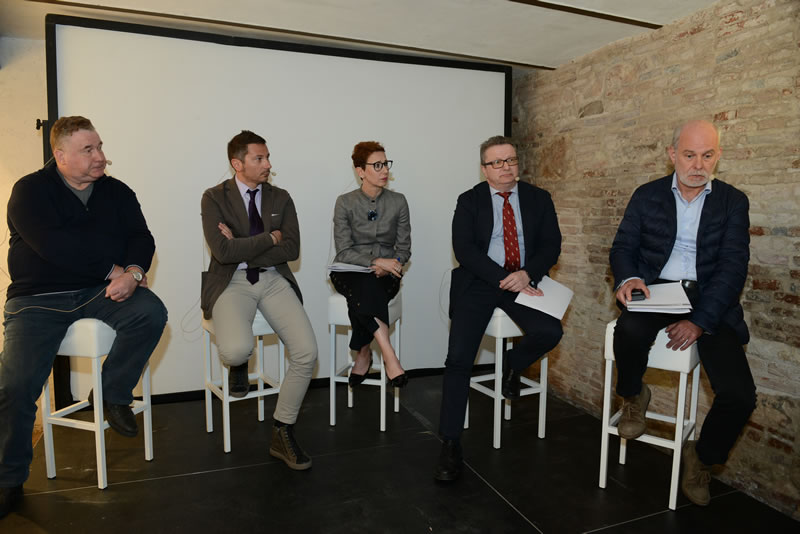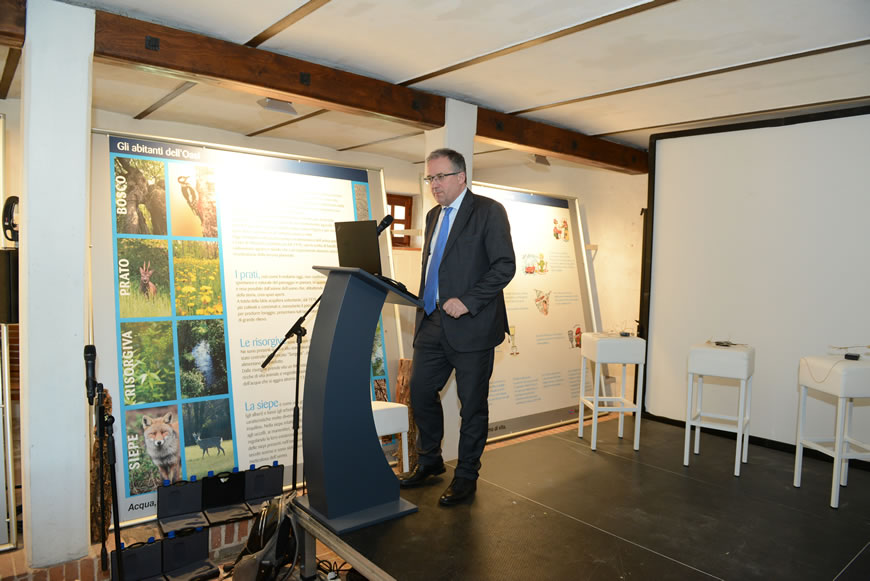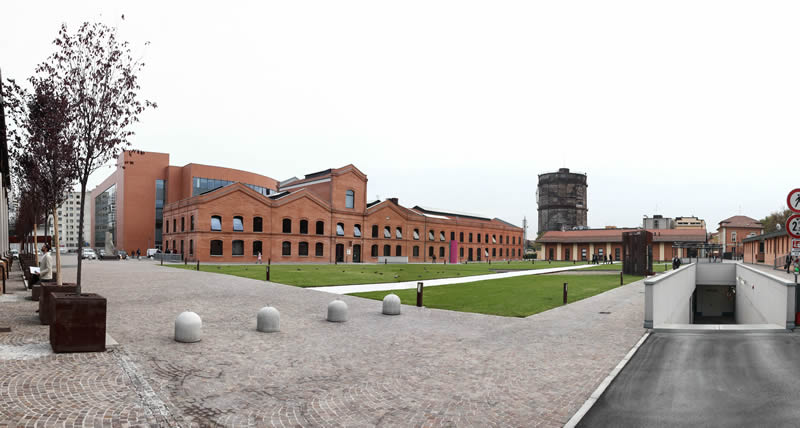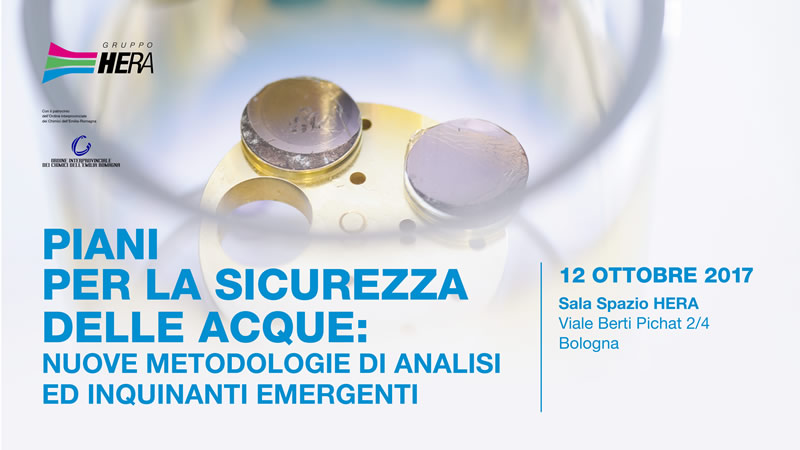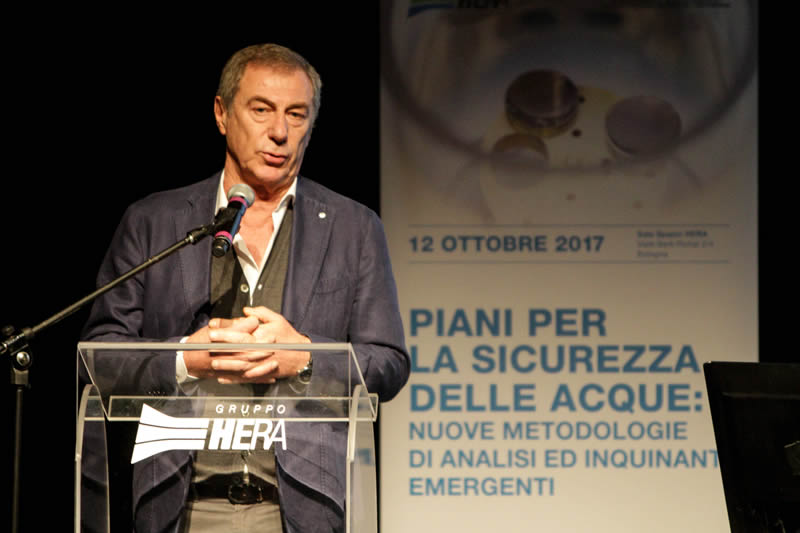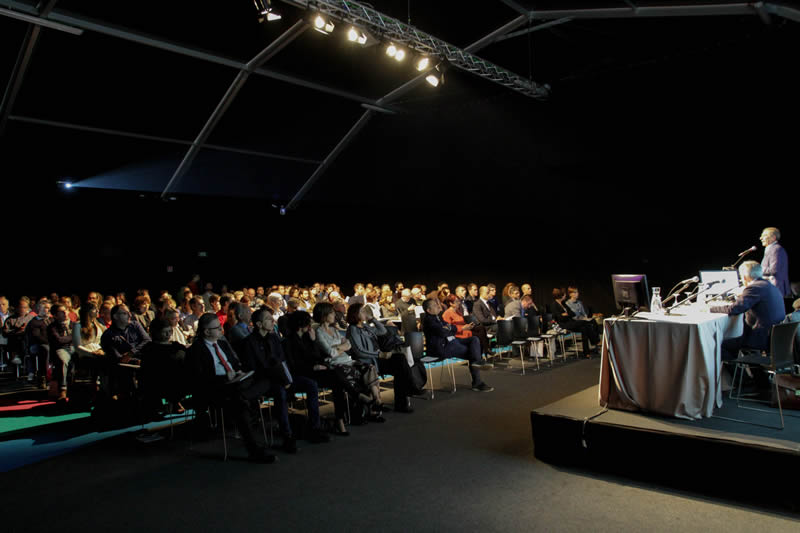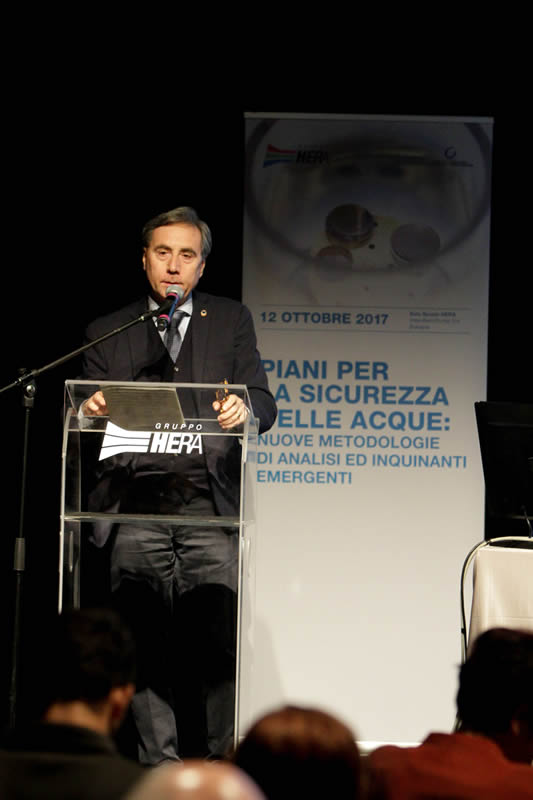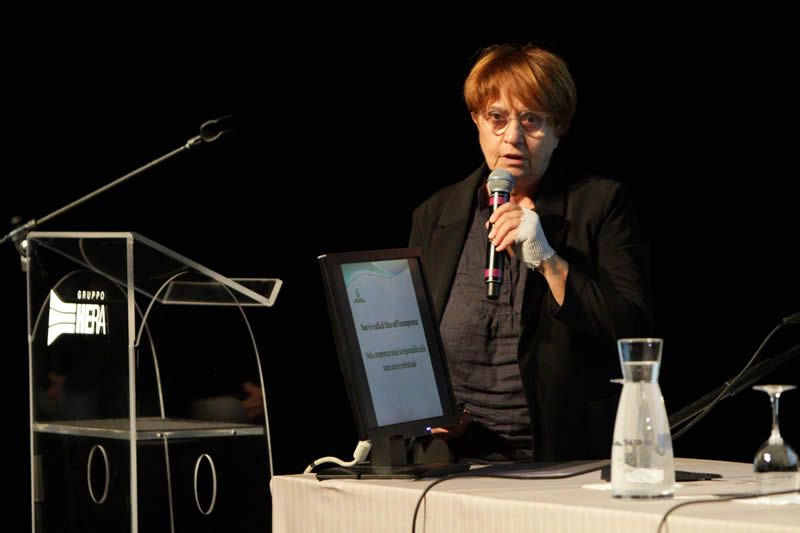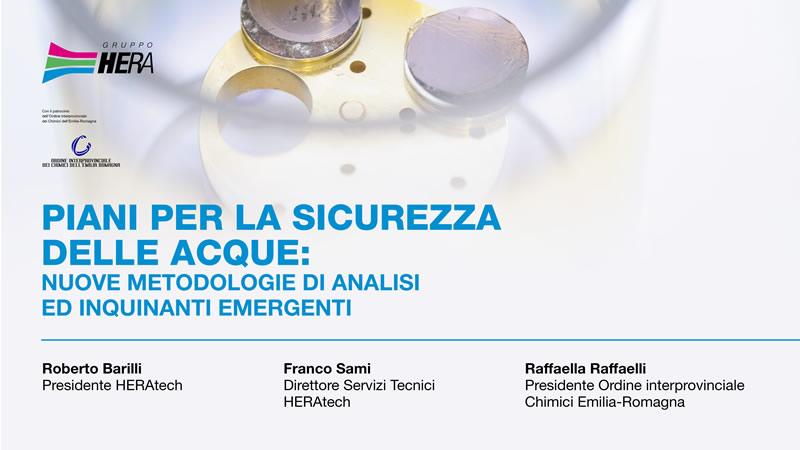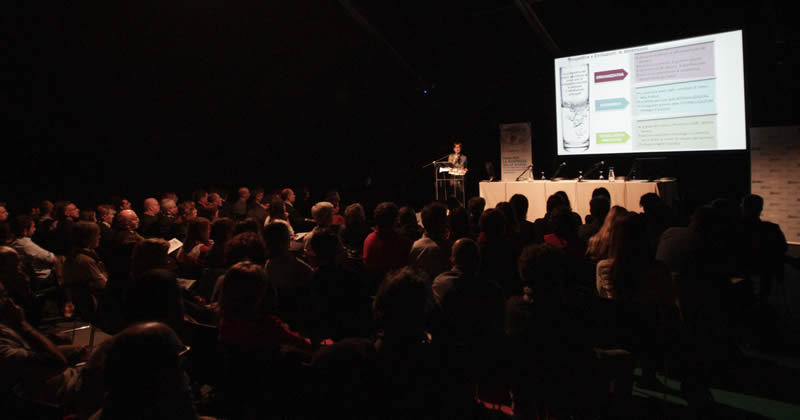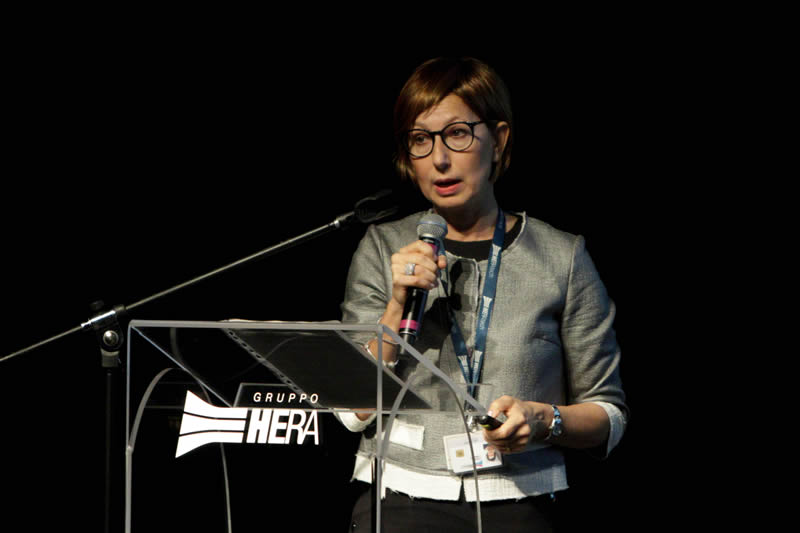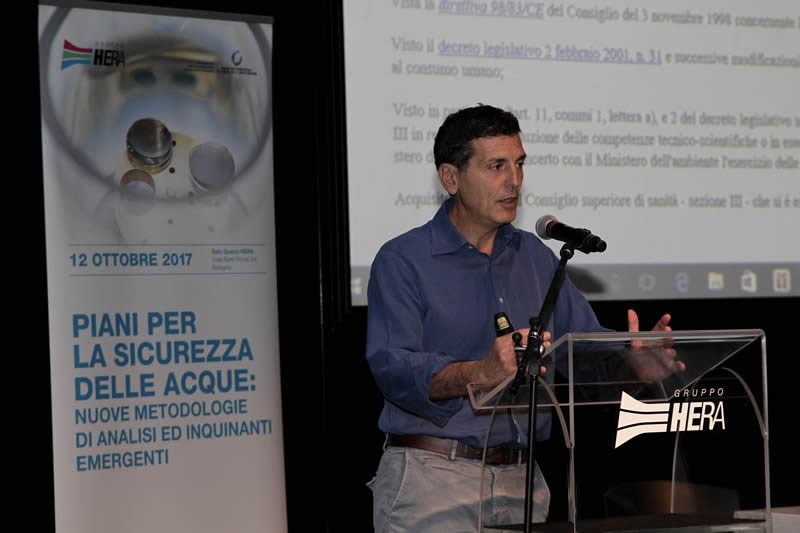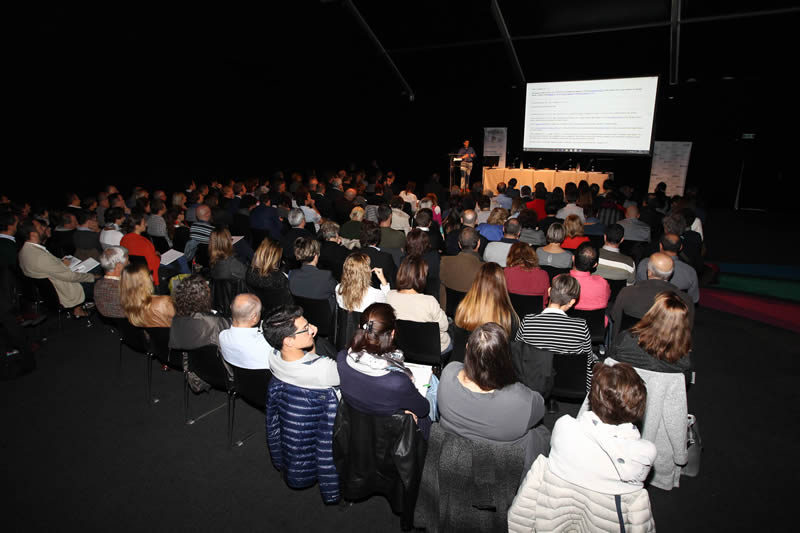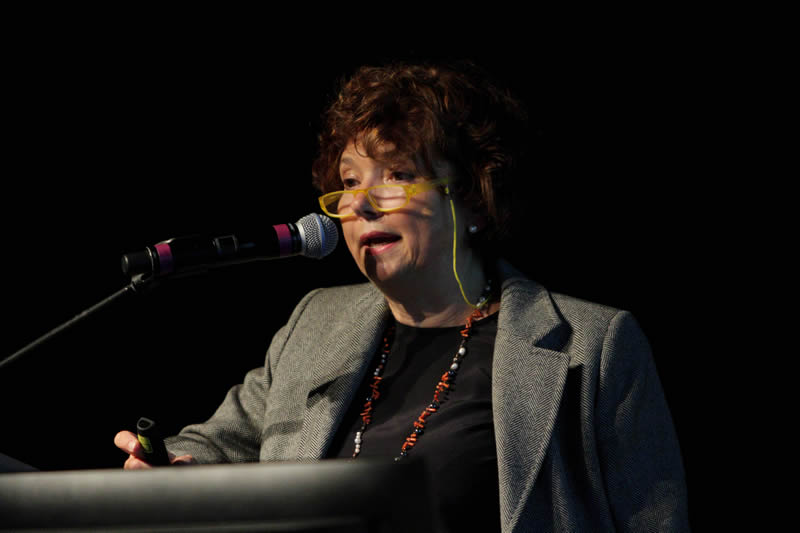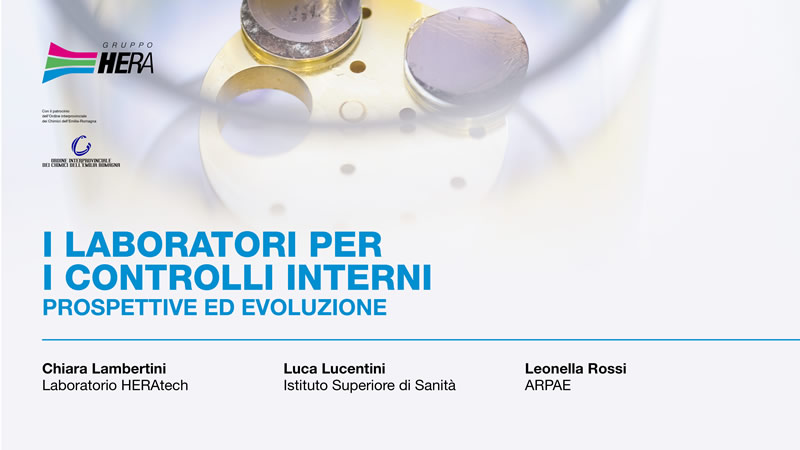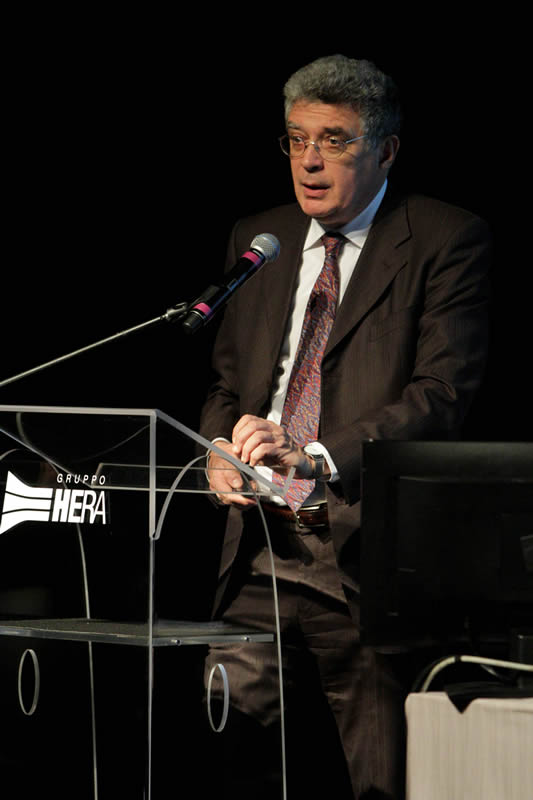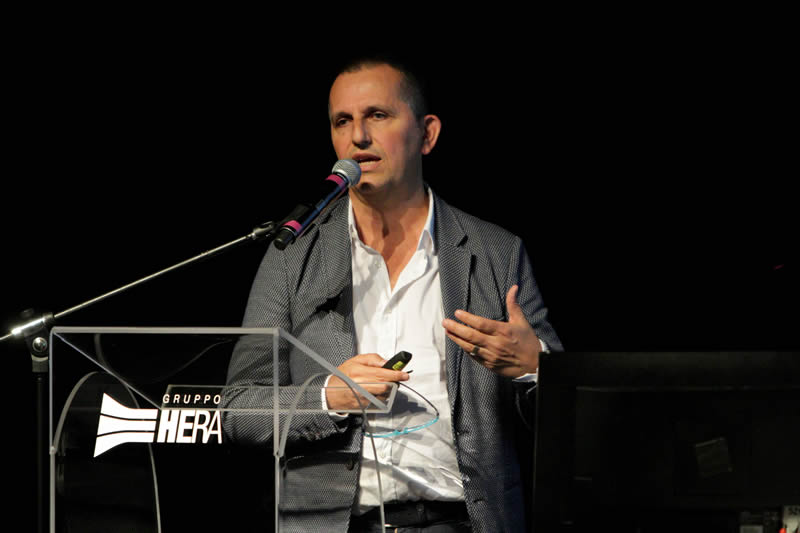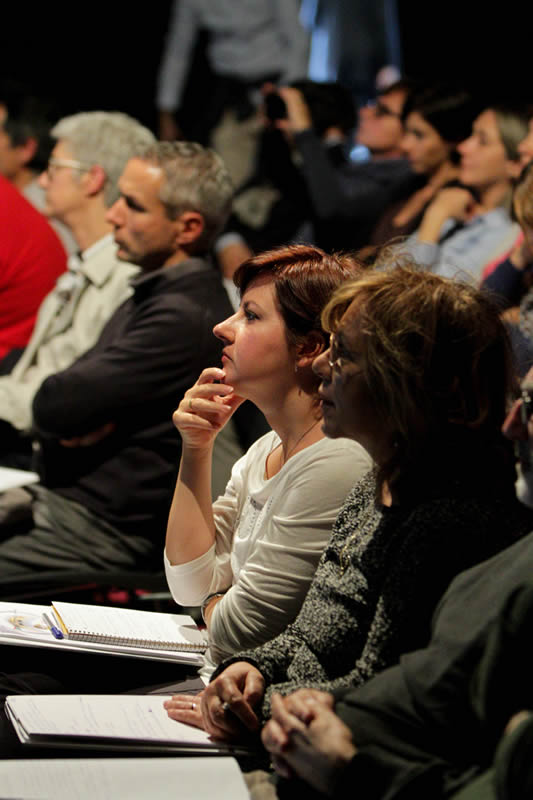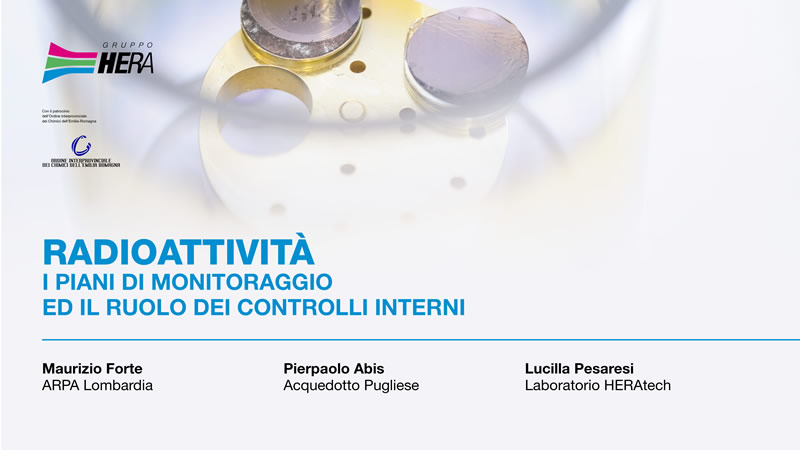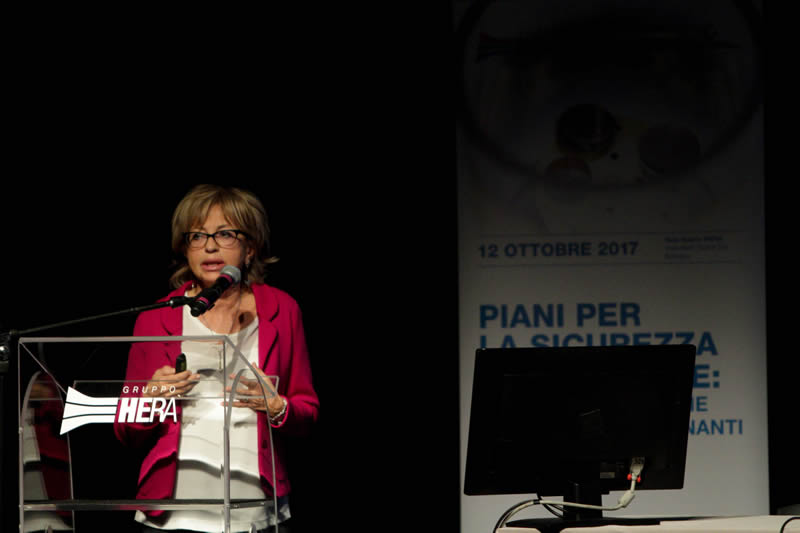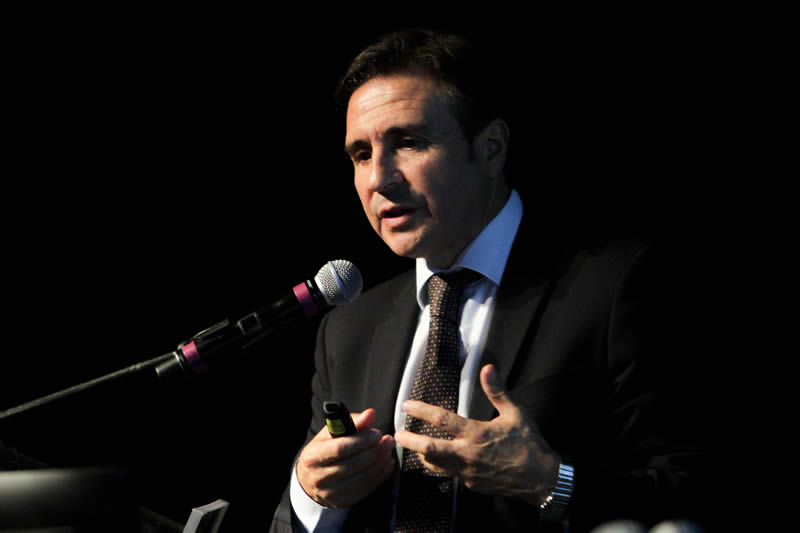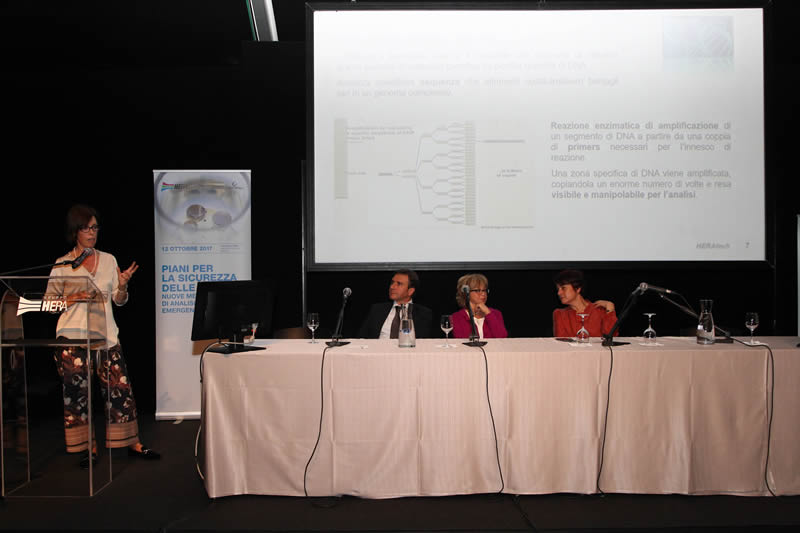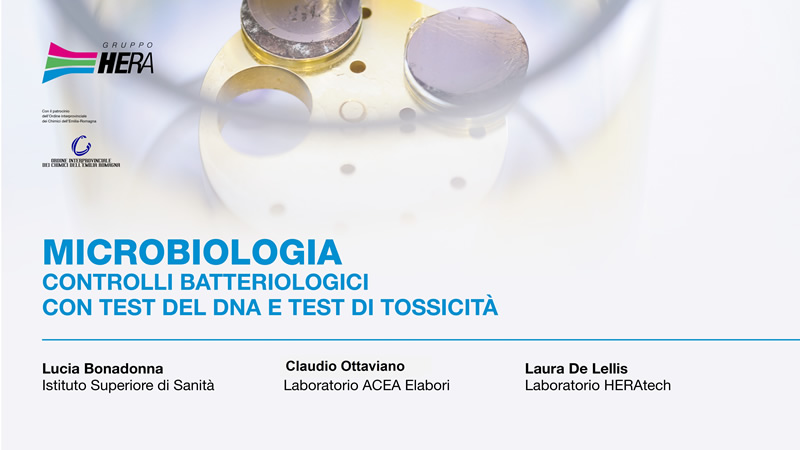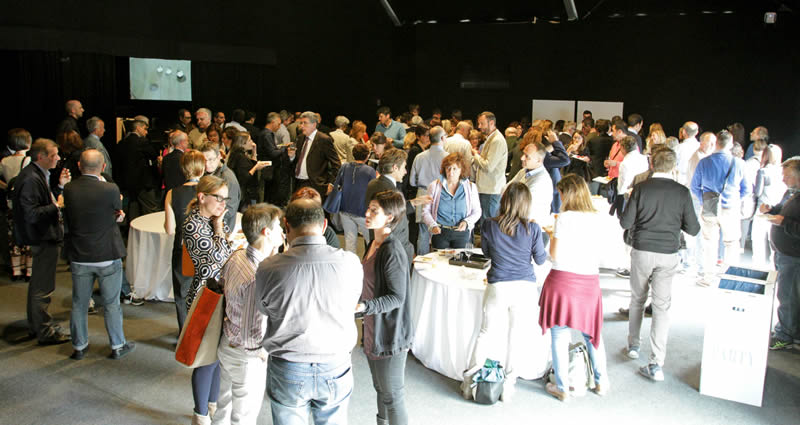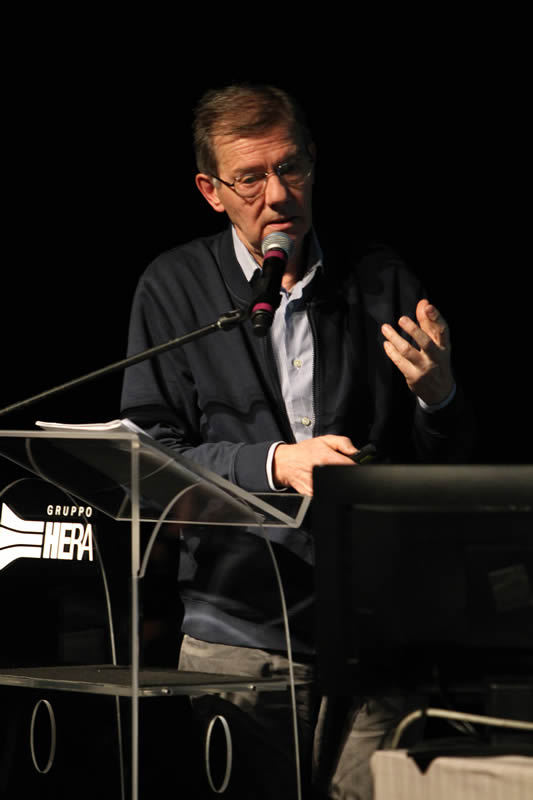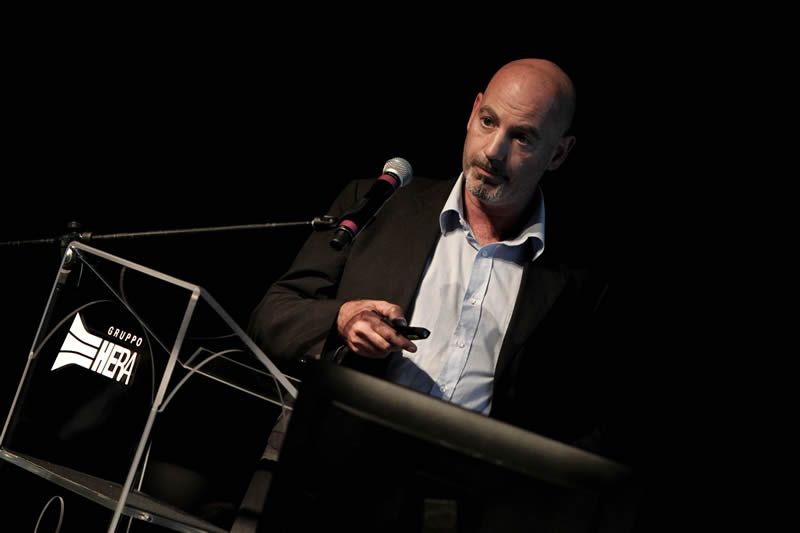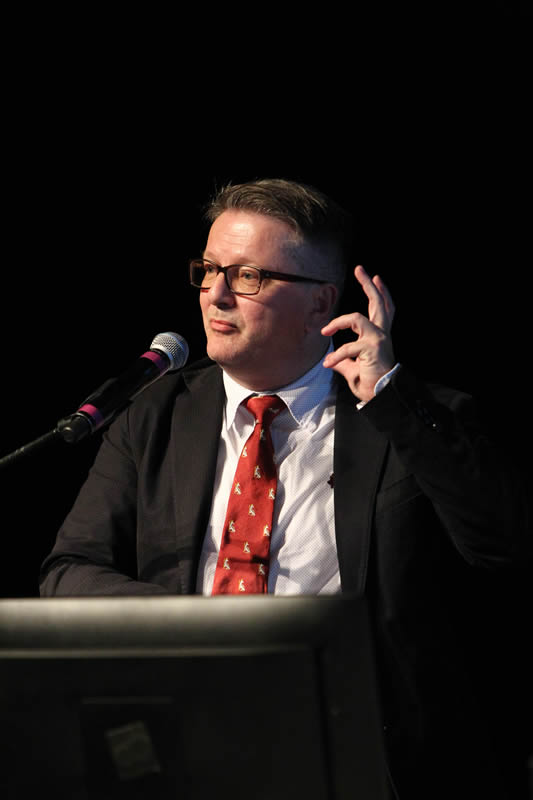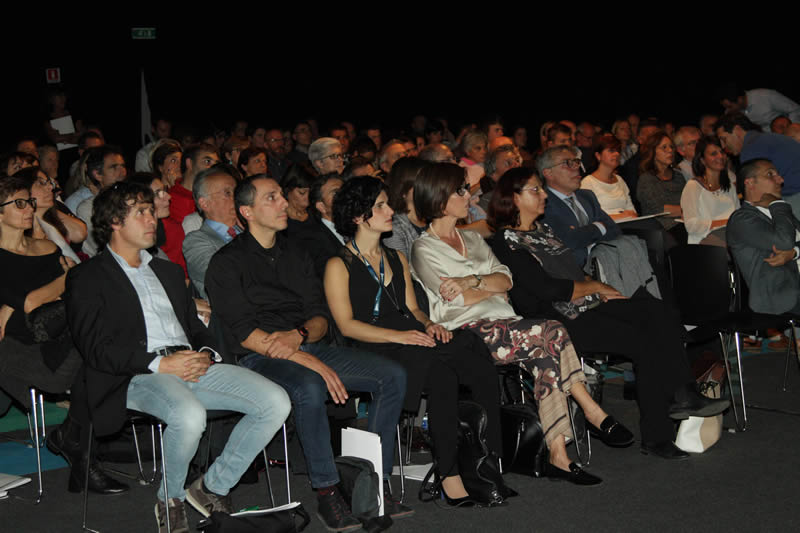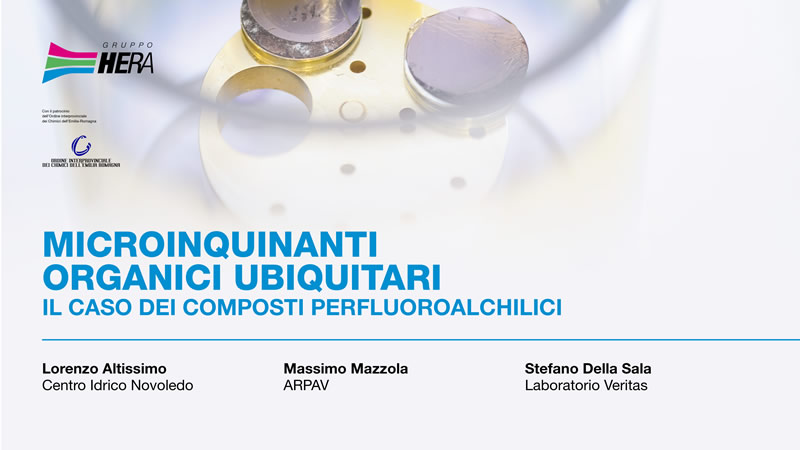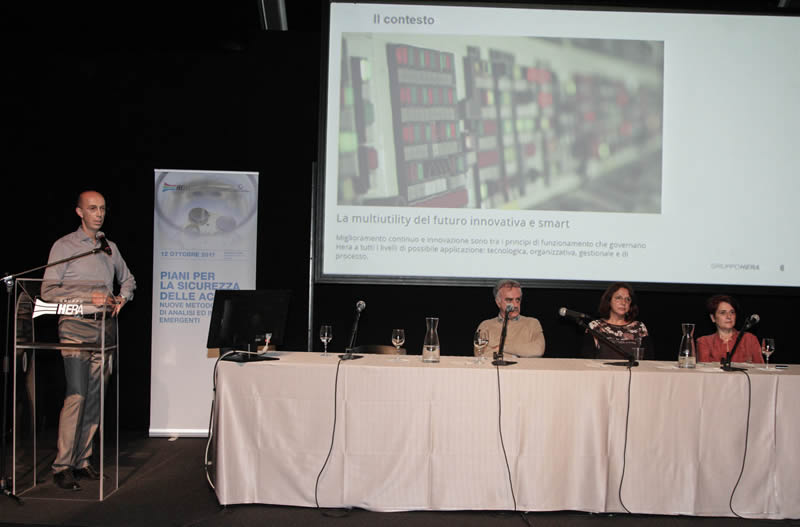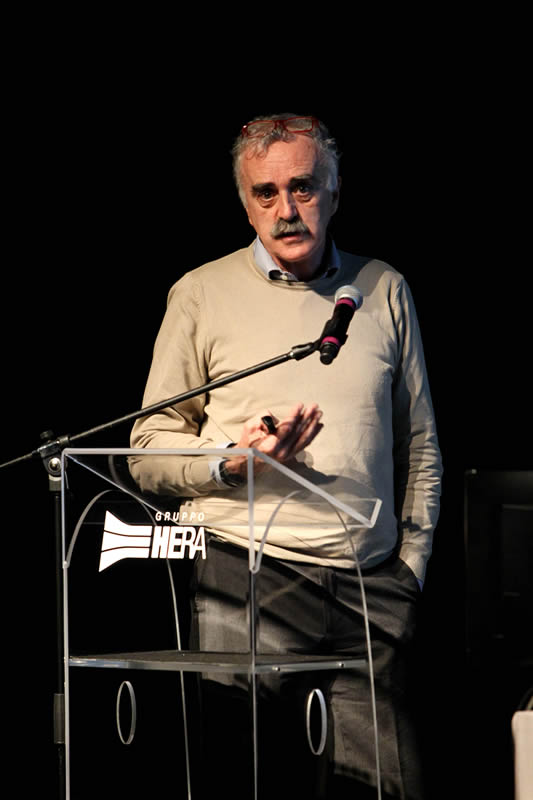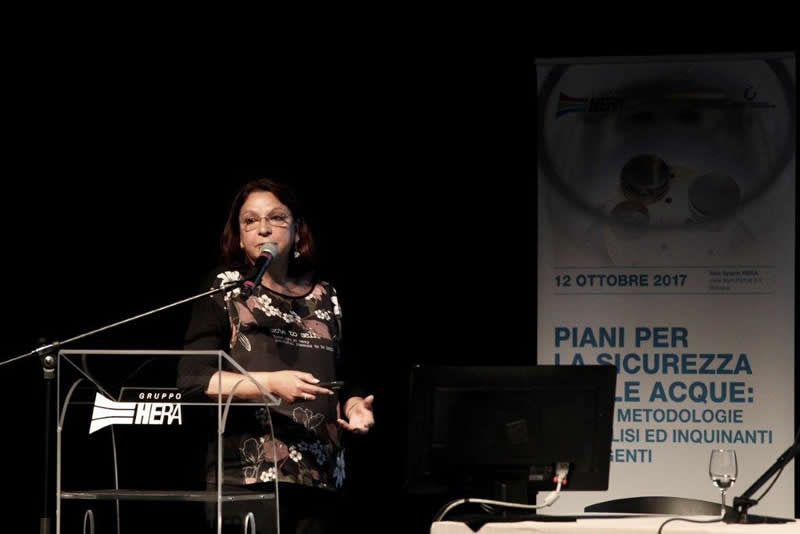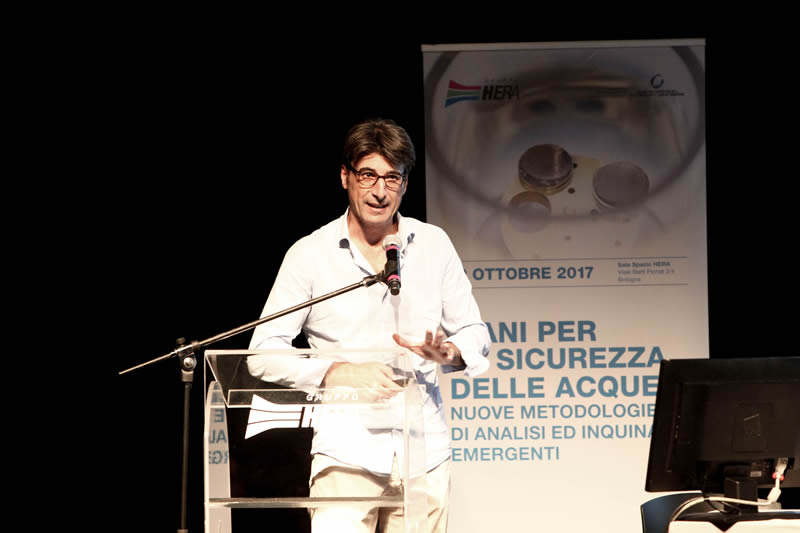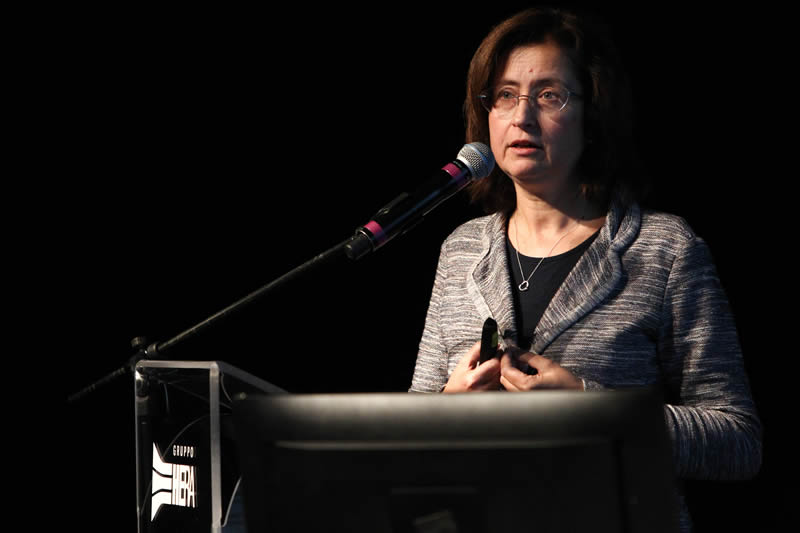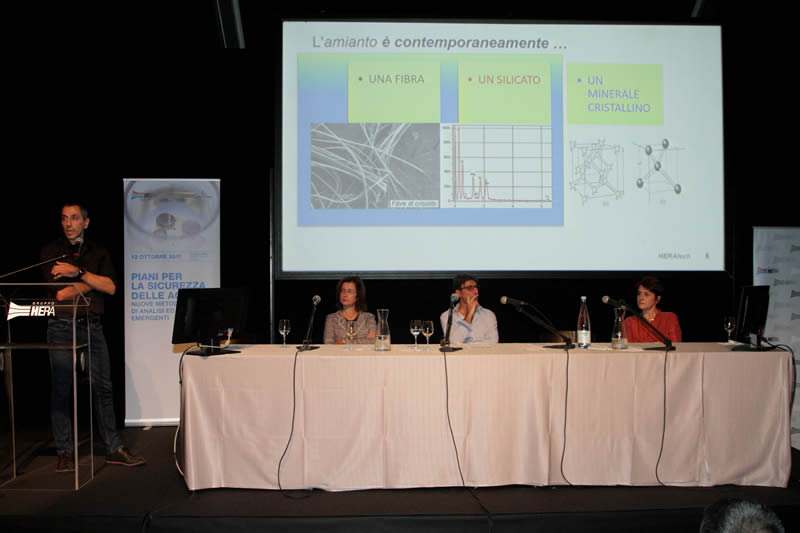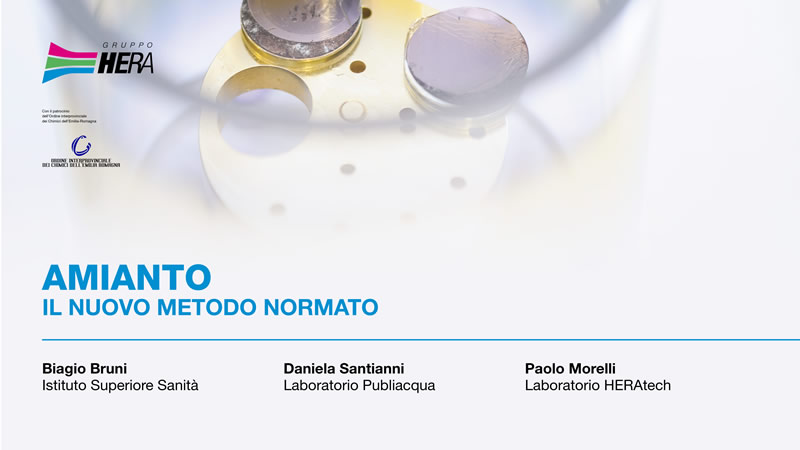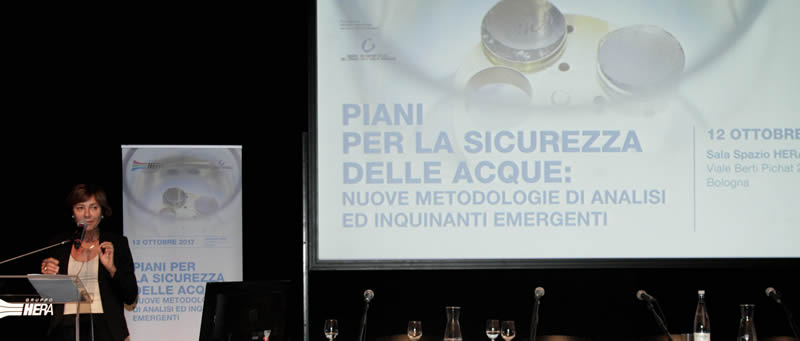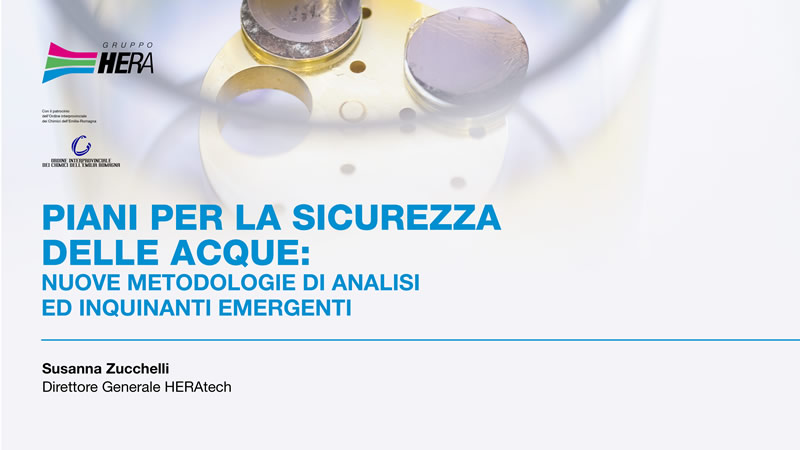Laboratories
Laboratories
Our commitment to a high-quality life
The Heratech Laboratories, leading Italian scientific centres for environmental analysis, contribute decisively to safeguarding and improving the quality of life for all of us. They monitor water systems – drinking water purification, distribution, and wastewater treatment – and control the waste treatment chain – waste-to-energy plants, composting sites, landfills, and chemical-physical plants – to ensure strict compliance with regulations. In addition to the services offered, we also perform industrial hygiene and environmental monitoring.
We provide the professionalism and know-how of our 85 technicians and the technological heritage of the Heratech Laboratories to companies and public bodies to carry out analyses and sampling, besides offering targeted consulting to customers outside our Group, such as water and environmental managers, companies or private citizens.
Our laboratories are certified by Accredia (the sole national accreditation body appointed by the Italian government that attests competence of laboratories). The certification ensures the reliability and reproducibility of the data the labs deliver. The network includes 3 main laboratories (in Bologna, Ravenna, and Trieste), and 6 logistics units for sampling throughout our service area.
Within our laboratories, special care is dedicated to the analysis of drinking water and wastewater; we are in fact one of the few facilities in Italy that perform advanced and cutting-edge analyses, such as the search for asbestos fibers, with scanning electron microscopy, or the search for "emerging pollutants", with high-resolution LC-MS spectrometers, conducted in collaboration with leading European research institutions.
Our laboratories do NOT perform tests on animals.
Our services
Our Laboratories carry out a punctual and constant monitoring, above and beyond regulatory requirements, both for the quantity of the analyses and for the quality of the sanitary and environmental results.
More specifically, we offer:
- On-site sampling and analysis
- Chemical, physical, microbiological and radiochemical analyses
- Scanning electron microscope (SEM) analysis and subsequent microanalysis
- Assistance in the interpretation of analytical results
- Consulting to solve specific problems
- Test design and/or execution in pilot systems
- Applied research and monitoring activities for the assessment of chemical and biological risks in the workplace
- Analytical and consulting assistance for waste characterization and classification
We are able to test more than 10 matrix types, using constantly updated methods:
- natural surface and deep waters
- drinking water
- wastewater
- irrigation water
- pool water
- land
- compost and fertilizers
- soil of contaminated sites
- liquid, solid and muddy waste
- gas and biogas
- chemicals used for treatment processes
Our laboratories are equipped with last-generation instruments that guarantee reliable and fast analytical data. We perform more than one million analytical determinations per year in the environmental and industrial fields, including search for:
- asbestos fibres
- heavy metals
- pesticide residues, perfluoroalkyl compounds and endocrine disruptors
- organic polluting compounds such as solvents, hydrocarbons, PAHs, PCBs; dioxins and furans
- "emerging pollutants" such as per- and polyfluoroalkyl substances (PFASs), Glyphosate, AMPA and glufosinate, endocrine disruptors, drugs and their residues, haloacetic compounds, and microcystin
- radionuclides
- biological, microbiological and virological forms (including legionellae and bacterial endotoxins in dialysis water)
The figures of our work
Quality and certified processes
The work and processes we carry out at Heratech Laboratories have obtained the most important sector-specific certifications:
Accredia Accrediting
The Bologna Lab Unit, the Forlì Lab Unit, the Trieste Lab Unit and the Novoledo Lab Unit constitute a multi-site ACCREDIA-certified Laboratory (certificate no. 0110 in compliance with the UNI CEI EN ISO/IEC 17025/2005 standard). This accreditation certifies the use of operating methodologies validated by Accredia and therefore the competence of the Laboratories in the services provided. Accreditation attests the work quality level of a given Body (certification and inspection) or Laboratory (testing and calibration), verifying that their management system and expertise comply with internationally recognized criteria and mandatory legislative requirements. Moreover, for accreditation obtainment and renewal, Accredia carries out periodic inspections to verify the technical and organizational standards of the test laboratories.
To consult the list of accredited tests of the Forlì Hera Laboratory,this page opens in a new window.
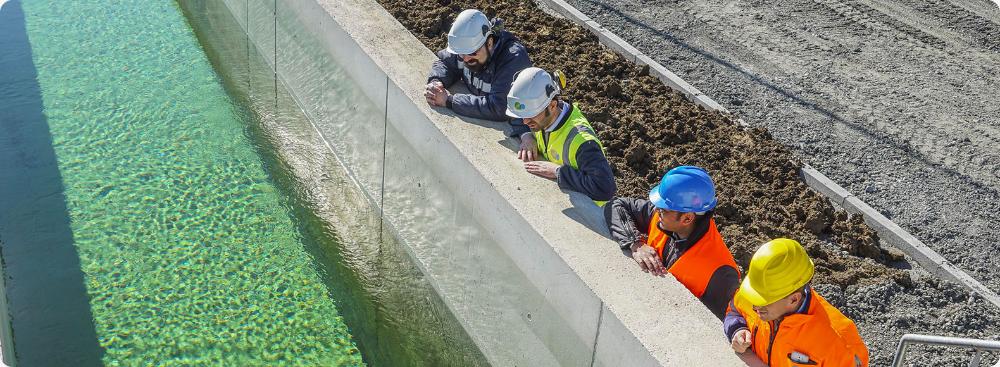
Quality Management System Certification
Our Laboratories are certified in accordance with the UNI EN ISO 9001:2015 standard. The field of application includes: sampling services, chemical and biological analysis and method development on water, gas, waste, mud, soil, compost, air and surfaces. Specialist assistance is also provided for the interpretation of analytical data and the definition of interventions.
Environmental Management System Certification
Our Laboratories have obtained the Environmental Management System certification, and therefore comply with the UNI EN ISO 14001:2015 standard. The management system in place monitors the environmental impact of our activities for systematic improvement and to ensure consistency, effectiveness and sustainability.
Occupational Health & Safety Certification
Our Laboratories operate in accordance with the BS OHSAS 18001 standard for occupational health and safety. Occupational Health and Safety Assessment Series certifies the voluntary application, within an organization, of a system that ensures adequate control of the Safety and Health of Workers, in addition to compliance with applicable regulations.
Social Responsibility Certification
In accordance with the legislation in force, we operate in a socially responsible manner towards our employees and suppliers.
Authorization for asbestos treatment
HERAtech Laboratories are included in the Ministry of Health's list of laboratories qualified to carry out asbestos analysis according to Ministerial Decree 14/05/96.
Certification laboratory for fertilizers
HERAtech Laboratories are authorised by the Ministry of Agriculture, Food and Forestry to carry out conformity analyses on fertilizers, including compost.
Compliance with international standards
Heratech laboratories use analytical methods according to international standards: AOAC, APHA, APAT - CNR, DIN, ISPRA, EPA, ISO, OSHA, NIOSH, ASTM, UNI, UNICHIM.
Glossary and useful links
For a better understanding, here are a few definitions:
- LABORATORIES: specialised structures overseeing the operation of the Hera Group's integrated water cycle and waste disposal systems, and the meeting of customer requests in a competent and professional manner.
- UNI EN ISO 9001:2015: this International Standard promotes the adoption of a process approach when developing, in order to improve the effectiveness of the Quality management system and increase Customer satisfaction through compliance with Customer requirements.
- UNI CEI EN ISO/IEC 17025: this standard specifies the general requirements of laboratories to carry out tests and/or calibrations of equipment, including sampling. The standard lays down the requirements that must be met by testing and calibration laboratories for the implementation of a Quality System and to guarantee technical competence and the production of reliable results.
- ACCREDITATION: the accreditation scheme was developed by the European Union in order to allow the free movement of goods and products within the EU, without the need for repetitive controls by the authorities of the various countries.
- ACCREDIA: formerly Sinal, established on 26th April 1988 on the initiative of UNI (the Italian National Unification Body) and CEI (the Italian Electrotechnical Committee) and under the patronage of the Ministry of Industry, Trade and Crafts (now the Ministry of Productive Activities), CNR (the Italian National Research Council), ENEA (the Italian National Agency for New Technologies, Energy and Sustainable Economic Development), and the Chambers of Commerce, Industry, Agriculture and Crafts. In Italy it represents the Accreditation Body that, being independent and representative of all interested parties, guarantees users, through periodic technical audits, of the competence and impartiality of the laboratories in carrying out the accredited tests. It verifies and monitors over time the compliance of laboratories with the UNI CEI EN ISO/IEC 17025 and ACCREDIA requirements.
M.U.R.S.T. (today called the M.I.U.R.): The Ministry of Universities and Scientific and Technological Research intervenes to support industrial research activities defined as "planned research or critical investigation aimed at acquiring new knowledge useful for developing new products, production processes or services or for achieving a significant improvement in existing products, production processes or services." - CERTIQUALITY
- ACCREDIA
- UNI
- MINISTRY OF INDUSTRY, TRADE AND CRAFTS
- CNR
- ENEA
- CHAMBER OF COMMERCE, INDUSTRY, AGRICULTURE AND HANDICRAFTS
- ARPA
A partnership for the safety of the environment
Our laboratory technical staff, in addition to offering scientific and regulatory advice, create partnering relationships for the resolution of complex needs: they provide specialist assistance for the management of sampling activities, the interpretation of analytical data and the definition of interventions in relation to current standards, bibliographic data or technical specifications.
These are the main areas of activity in which we operate:
- Sampling
We carry out sampling on all environmental, liquid, solid and gaseous matrices with specific methods and in compliance with the standards. - Analysis of drinking water, groundwater and wastewater
In order to verify the requirements of drinking water and the acceptability of wastewater returned to the environment, the Laboratory is specialized in:- chemical analysis
- physical analysis
- microbiological analysis
- toxicological analysis
- organic analysis
- radiochemical analysis
- Waste analysis and related classification
This activity involves the quantification of occurring substances in order to measure toxicity and hazardousness. In this way, it is possible to characterize and classify waste materials in a clear way, and determine the most correct way of disposal or environmental recovery. - Chemical and microbiological analysis of compost, biological muds and composting materials
This includes:- analysis of biological muds for recovery in agriculture
- decomposing muds analysis with filamentous bacteria speciation
- toxicity analysis
- respirometric indices and compost quality characterization
- analysis of soils for the purpose of decontamination activities and fallout on the ground.
- Control of atmospheric emissions (ducted and diffuse)
Our laboratories are able to perform:- sampling and analysis of emissions from industrial activities such as waste-to-energy plants, thermal power plants and gas-turbine plants to verify compliance with regulations
- monitoring campaigns of ambient air and/or diffuse emissions in industrial plants to verify compliance with regulations
- impact assessment, functionality and efficiency checks of pollutant emission abatement systems, according to UNI EN14181 standard
- instrumental measurement of odour nuisance and sampling with Canister.
- Smells
Through highly specialized partnerships, our laboratories offer services of analysis and study of smells on air samples taken in various environmental conditions. Olfactometric analyses are essential to understand the real smell concentrations and provide a complete picture of the possible osmogenic impact, in order to adopt suitable measures to abate them. - Safety and hygiene in the workplace
Measurement and assessment of workers' exposure to airborne chemicals, asbestos, and organic and inorganic substances are carried out.
Monitoring is also carried out on the concentrations of biological agents in the air and on surfaces, useful for assessing biological risk. - Industrial hygiene
Our Laboratories offer consultancy in the field of Industrial Hygiene, supporting the definition of environmental and personal investigation protocols, to ensure an adequate monitoring of the exposure conditions of operators and population. - COVID-19 analyses
Sars-CoV-2 Monitoring- From the production of gel sanitiser for our workers to analysis of the presence of the virus in the workplace, we foster a process of environmental sanitation. Even during the Covid-19 sanitary emergency, HERAtech Laboratory used its expertise for the benefit of the Group.
- Our laboratories perform the determination of Sars-CoV-2 in the water, air and surface matrix, using the RT-PCR technique, acronym for "real-time chain polymerization reaction”. We collaborate with the Italian National Institute of Health (ISS) on a research project on the virus in wastewater, and have developed partnerships with industrial companies and institutions in order to monitor and sanitise at the workplace, both on physical surfaces and in air flow.
- Asbestos
The Hera Laboratories carry out both qualitative and quantitative determination of airborne fibres and search for asbestos in manufactured goods and in various environmental matrices using modern instrumental techniques, such as scanning electron microscopy (SEM). Thanks to a microanalysis system, this technique allows certain attribution of asbestos fibers, compared to other non-fibrous coils and other types of fibers.
Our experience with asbestos can be summarized as follows:- 20 years of activity
- 400 samples analysed every year
- participation in the Ministry of Health's qualification programme
- accreditation of the analytical method to test water
- participation in working groups for the drafting of official analysis methods.
- The ongoing studies on the toxicological assessment of the presence of asbestos fibres in drinking water have led the Hera Laboratories to become a reference facility for numerous companies managing the integrated water service over the national territory.
- Radioactivity
Our Laboratories perform the determination of radioactivity in drinking water, according to the provisions of Legislative Decree no. 28/2016, using liquid scintillography.
We perform monitoring of the following parameters:- screening and Total Alpha Radioactivity abd Beta Radioactivity
- Tritium
- Radon
- calculation of the indicative dose.
Our laboratories comply with the adequacy criteria defined by the Ministry of Health, as we operate according to the ISO IEC 17025 standard, using methods issued by international standardization bodies.
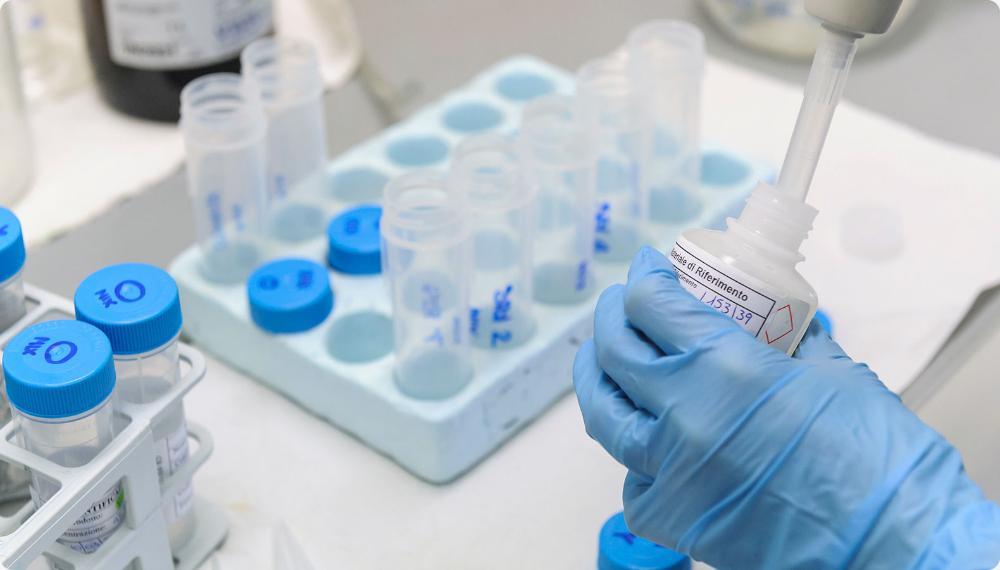
Cutting-edge experience and instrumentation in the search for "emerging pollutants"
An area of excellence of our laboratories, recognized at an European level, is the research of "emerging pollutants", which we carry out in collaboration with leading international research organizations. "Emerging pollutants" come from manufacturing processes and the use of cosmetics, drugs, and other everyday products that can interfere with the normal functioning of our hormone systems and those of other living organisms.
Thanks to the purchase of a liquid chromatography-mass spectrometry device (HPLC/MS), we have increased sensitivity 1,000 times over the previous instrumentation (dated 2007) and reached very low quantification limits (measured in nanograms per litre).
For natural waters, direct injection of the samples into the aqueous phase is performed solely with treatment on 0.22 µm porosity filters. It is thus possible to reduce sampling volumes and the use of solvents and plastic containers, with great advantages for the environment, the safety of our operators and saving costs. In addition, the elimination of the sample preparation step significantly reduces the analysis time. The parameters already determined with this new instrumentation are listed below, but the list is continuously updated:
- Perfluorinated Organic Compounds (PFAS)
- Glyphosate, AMPA and glufosinate
- Endocrine disruptors
- Haloacetic compounds
- Microcystin
- Atrazine and its derivatives
- Multiresidual analysis of pesticides.
PFAS The Heratech Laboratory is part of the specific working group coordinated by the Italian National Institute of Health, in collaboration with the Ministry of Health, for the implementation of European Community decisions on national territory. The research in the Heratech Laboratories for this class of compounds has expanded over the years, ranging from water to human consumption, from waste to the control of incinerator emissions.
We pool the know-how of our laboratories
The Heratech Laboratories make available all the know-how our technicians acquire, by creating thematic courses or taking part in public interest events.
2023-2024
In 2023 and 2024, Heratech Laboratories participated in a national study on the monitoring of SARScov2 variants.
This study underlines the importance of environmental surveillance as a tool to monitor the emergence and spread of new variants of SARScov2, especially during periods of low virus circulation.
The method presented provides a specific, sensitive and rapid approach to detect and monitor the presence in wastewater of a specific variant of SARScov2 (Omicron BA.2.86), which has attracted attention for its potential immune evasion property. Using a new digital PCR analytical test for rapid detection in wastewater samples, wastewater samples collected in Italy from September 2023 to January 2024 were analysed by the ISS as part of sampling and analysis campaigns called "flash surveys".
The analysis revealed the presence of the variant as early as October 2023, its rapid subsequent increase to become dominant in January 2024, further underlining the importance of wastewater-based surveillance in monitoring emerging variants and the effectiveness of targeted digital PCR assays for environmental monitoring.
Here is the publication: Paper on the diffusion of the Omicron BA.2.86 variant in Italy, entitled "Tracking the spread of the BA.2.86 lineage in Italy through wastewater analysis", accepted in the Food and Environmental Virology Journal
2023
In 2023, a study was prepared with ARPAE and the University of Bologna on the predictive capacity of wastewater monitoring regarding the development of SARScov2 variants.
“Wastewater-Based Epidemiology for SARS-CoV-2 in Northern Italy: A Spatiotemporal Model" has been published
in IJERPH and is available online:
https://www.mdpi.com/1660-4601/21/6/741
2020
Last July 22, we held a webinar on "The evolution of INDOOR and biological risk monitoring in the days of COVID-19". The program and the proceedings can be accessed below.
Here you can read our publication in Astrolabe on the monitoring of Covid-19 by HERAtech: http://astrolabio.amicidellaterra.it/node/2096
2019
We participated in the FESTIVAL DELL'ACQUA UTILITALIA 2019 with an information desk in Bressanone, in May, and with a report on "Assessments on the recovery of valuable materials from the urban wastewater treatment cycle" in Venice, in October.
2018
In April 2018, at the Water Centre of Novoledo (VI), Heratech jointly organized with AcegasApsAmga the Conference for Managers of the Integrated Water Service of Veneto and Friuli-Venezia Giulia.
How is the concept of water potability changing? How is it possible to effectively fight “emerging pollutants” (PFAs, but not only)? How can synergies between water resource operators be improved in order to secure water resources and offer a more efficient and effective service, also in the face of climate change?
These are some of the issues addressed by the top management of the leading water service companies in Veneto and Friuli-Venezia Giulia: Acque del Chiampo, Acque Venete, Acque Veronesi, AcegasApsAmga, Cafc, Etra, Medio Chiampo, Veritas, and Viacqua. They were joined by the representatives of the regulatory authorities: Istituto Superiore di Sanità [Italian National Health Institute], ARPAV, and ATO Bacchiglione. The meeting was sponsored by the Interprovincial Order of Chemists of Veneto.
See below for the photos and proceedings of the conference.
2017
In 2017 our Spazio Hera in Bologna hosted the “Plans for water safety: new methodologies and emerging pollutants” conference. The Italian Chemists Association participated actively together with other major institutions: the Istituto Superiore di Sanità [Italian National Health Institute], Arpa ER, Arpa Lombardia e Veneto and Health Authorities, INAIL, ENEA, CNR, and the leading Integrated Water Service operators in Italy.
The day was full of speeches that dealt with various topics, from Water Safety Plans, to planning checks, to in-depth technical studies on emerging pollutants, to more managerial discussions on laboratory facilities, their sustainability and the skills and professionalism of those involved.
See below for the photos and proceedings of the conference.
Page update on 19 May 2025
Creating shared value report 2024

